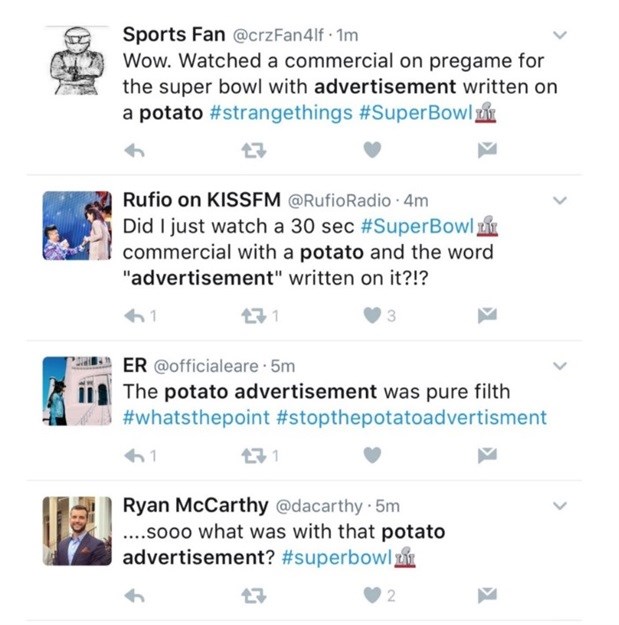
Top stories






More news


Marketing & Media
Ads are coming to AI. Does that really have to be such a bad thing?













Over the years, the Super Bowl has brought to the fore some of the most creative, inspiring, exciting brand marketing I’ve seen. You may recall Oreo’s 2013 moment of glory when they capitalised on an opportunity during a brief power outage. 'Power Out? No problem', they tweeted, 'You can still dunk in the dark'. The real-time response on social media delighted fans and followers, resulting in tens of thousands of social media shares and millions of impressions.
From title sponsors PepsiCo to smaller companies trying to make their Super Bowl mark – the amount of pre-planning, brainstorming, agency consultations, copywriting, editing, proofing, design work, logo placement, etc., that must go into one of these almost-5m dollar premium advertising slots is impressive. So to stand out from the Super Bowl ‘noise’, your brand needs to step up.
2017’s Super Bowl was no different. Budweiser’s politically-relevant 'Born The Hard Way', Coca Cola and Airbnb’s statements about diversity and inclusion with 'It’s Beautiful' and 'We Accept' and Audi’s message of gender equality 'Daughter' were the clear favourites.
So why, the next day, was #CardsAgainstHumanitySuperBowl trending? Intrigued, I followed the hashtag to an article that had been published by the games brand, 'Why our super bowl ad failed'. In their 790-word explanation, they detail the errors they made with their Super Bowl advert. “We wasted time with establishment thinking. We relied too heavily on extensive market research. We didn’t trust our consumers." Valid marketing faux pas for any brand. And then I watched their ad.
A 30-second clip of a potato emblazoned with the word 'ADVERTISEMENT'. No panning, no zooming, no audio, no subtitles. No call to action. And most interestingly for any marketer, no branding.
“We forgot to mention our product. There’s no getting around it. We should have included Cards Against Humanity’s name or logo in the ad. Was this our fault? Absolutely. Do we have regrets? Of course. If we could do it all over again, mentioning the name of our product would probably be our first change.”
By this stage of course, I’m well aware that the article is a tongue-in-cheek subversion of Super Bowl advertising and after a bit of Googling, it seems the ad wasn’t actually flighted during the Super Bowl, despite some strategically well-timed evidence to the contrary:

Did Cards Against Humanity really spend hard-earned budget on this TV commercial? Or was it all an elaborate guerilla marketing campaign supported by some key influencers? I contacted a few of the people above to ask them directly, and each one replied they "think they saw it as part of the pre-game screening”. But fake news or not; it doesn’t matter. What this brand managed to do either way was capture intrigue, provide talkability, and create something so left-field that people couldn’t help but weigh in on the story online.
If I’d been briefed last week on this ad, you would have likely seen 20-somethings laughing together as they played the card game – with close ups on the brand’s logo and an accompanying web address (in Open Sans Bold) to ensure I was driving sales. And that certainly wouldn’t have trended post-Super Bowl amidst the numerous game commentaries, analyses, and competing brands all vying for a piece of the exposure pie.
So this year, when it comes to the bigger blue-sky ideas – I’m all about that potato.
